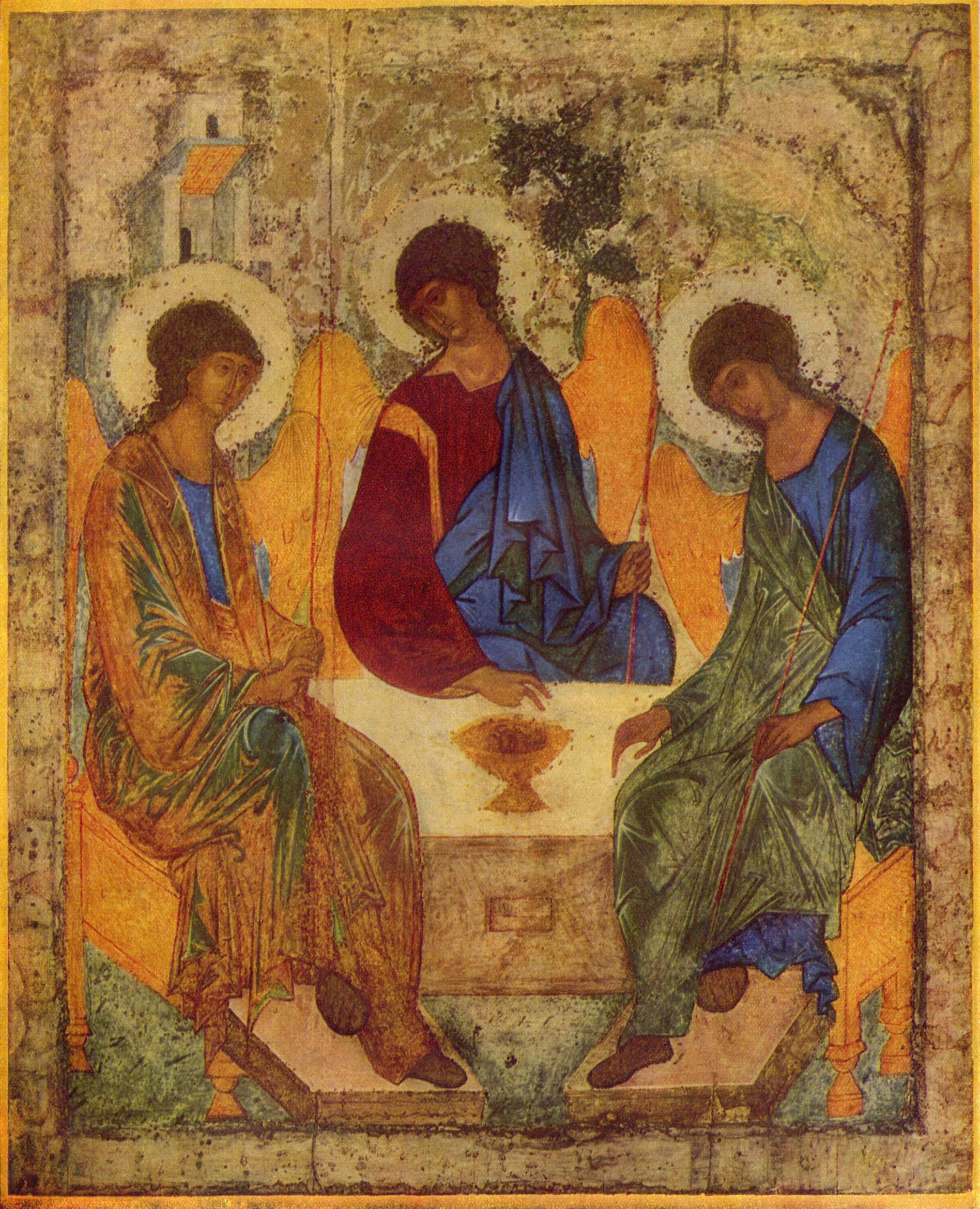The Most Holy Trinity is a Reflection of God's Image and Likeness
The word Trinity or trinitas in Latin means threefold. The word is not in scripture, but it is derived from the early Church Fathers that try to explain the belief that God the Father, God the Son, and God the Holy Spirit are three distinct persons in One God. The Church Fathers, such as Ireneaus, Tertullian, and many others used examples to describe the Holy Trinity. For instance, Ireneaus used the image of the two hands united to the body--the head is the Father and the two hands is the Son and the Holy Spirit. According to Irenaeus, the Father is the Creator, and from the Father who is the Source of existence comes the Son who is begotten (not made); the Son, like the Father is involve in the process of Creation as the plan of creation unfolds; in addition, the Holy Spirit is the architect in the process of creation.
For Tertullian, there is the image of the plant, a stream, and the sun. The plant has three distinct parts like the Root (the Father), the shoot (the Son), and the fruit of the plant (the Holy Spirit), what unites the parts together is the root of the plant. The other image is the stream which begins with a font or spring (the Father) and the stream ( the Son), and the canal (Holy Spirit). Another image is the Sun, the Sun is the source (Father), the rays of the sun is the Son, and the heat produce from the rays of the sun is the Holy Spirit; all three are united into One Source.
However, from the very beginning of Creation, the presence of the Holy Trinity has been hidden from the believer. The Father, who is the creator, is selfless and shares creation with humanity. He is present with the Son as the Word through whom all things came into the existence, and of course the Spirit as the wisdom of God. In Genesis 1:26, there is the presence of more than one person involve in creation. God the Father said, "Let us make in our image." Here is a small evidence that the presence of the Holy Trinity had already existed from the very beginning of time. Moreover, the presence of the Trinity reappears in the scene of Abraham by the Terebinth (Gn. 18:1-2). Abraham looked up and saw three men whom scholars claim is the presence of the Holy Trinity.
All this, leads one to discuss that each person in the world is a reflection of the Holy Trinity. When God the Father created Adam, he loved his Son so much that he took the image of His Son to create Adam. In addition, He breath into Adam's nostrils life and gave him the Spirit. Imagine, the love of God is reflected in the first human being to be righteous and holy like the Trinity. However, the image and likeness of God became tarnish; for this reason, God sent his only Begotten son to reveal the hidden presence of the Trinity and from where Adam's image came from. In John's Gospel, Jesus, who is the second person of the Trinity, heals a blind man and puts dirt and saliva onto his eyes (Jn. 9). The man recovers his eyesight, but he realizes that he could see and sees Jesus. Although he does not recognize from where his image and likeness comes from, the image and likeness of humanity comes from the Son.
Our entire life has to reflect the image and likeness of Christ here on earth while imitating his example, and hopefully we could come to reflect his passion, death, and resurrection. He has come to reveal the hidden presence of the Holy Trinity by once again uniting us to the Father through the Holy Spirit. His death brought about the unity that once kept humanity apart from his creator. Today, we have been blessed to see where our true reflection comes from, and we must look like him on the cross and resurrected from our graves. May this inspiration draw us closer to the mystery of the Holy Trinity.






